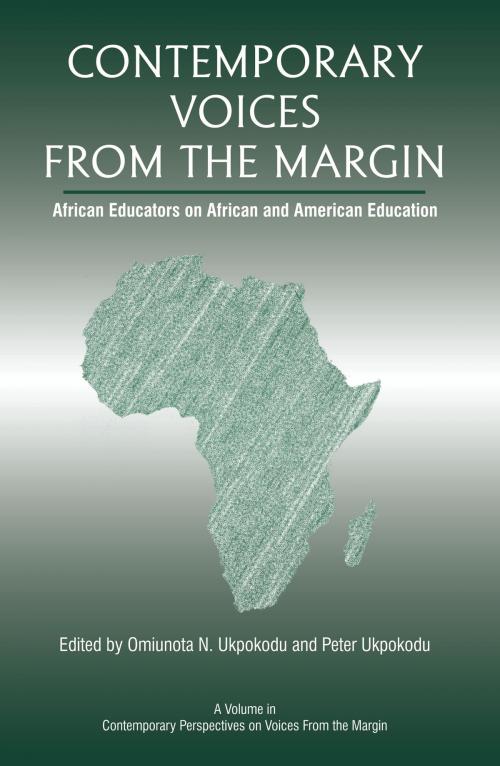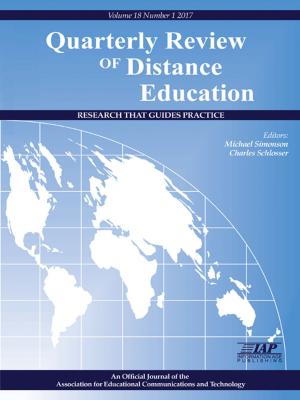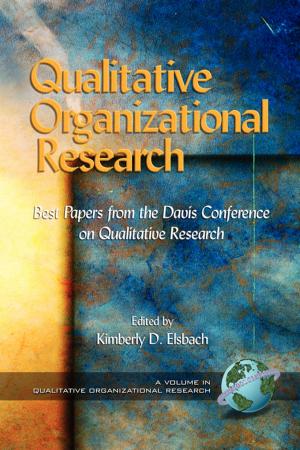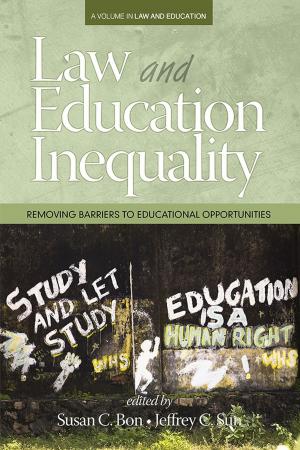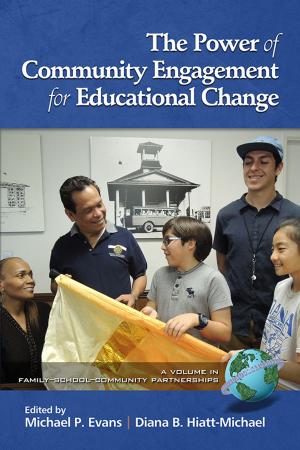Contemporary Voices From The Margin
African Educators on African and American Education
Nonfiction, Reference & Language, Education & Teaching, History, Reference, Social & Cultural Studies, Social Science, Cultural Studies, African-American Studies| Author: | ISBN: | 9781617357978 | |
| Publisher: | Information Age Publishing | Publication: | June 1, 2012 |
| Imprint: | Information Age Publishing | Language: | English |
| Author: | |
| ISBN: | 9781617357978 |
| Publisher: | Information Age Publishing |
| Publication: | June 1, 2012 |
| Imprint: | Information Age Publishing |
| Language: | English |
Traditionally, American educators and communities have looked to Europe and Asia for ideas for rethinking and reforming education for America’s diverse children. This book, Contemporary Voices from the Margin: African Educators on African and American Education, brings together new voices of diverse Africanborn teacher educators and Africanist scholars who share personal experiences as well as researchbased perspectives about education in Africa and America that will be valuable to rethinking and reforming education for America’s struggling schools. The book is a comprehensive work of experienced educators and scholars in the field of teacher education and African Studies. The editors of the book invited a diverse group of Africanborn teacher educators and scholars from different countries of Africa who teach in the U.S. The contributors share a common African experience, but they are geographically diverse in countries of origin and research. Their knowledge about African communal living as well as colonial powers and imperialism as they operated in various African countries enables them to compare and contrast various educational models and practices, including traditional ones. They are also diverse in their fields of specialization but have expertise in multicultural education, urban education, and culturally responsive pedagogy that have become the focus of U.S. discourses in public education and teacher preparation programs. Given that these scholars were born or socialized, and educated in, as well as, taught schools and colleges in their respective African countries before settling in the United States, they bring a wealth of experience and insights into what it means to successfully educate children and youth. The book is divided into three parts. Part 1 examines African processes and practices of education, both formal and informal, as contributing authors share perspectives about African indigenous education including cultural socialization and formal westerntype education and organization of schools. Part 2 focuses on patterns and structures of formal, westerntype education in selected African countries. Part 3 explores crosscultural perspectives on American education. The contributors provide chapters of stimulating and rich perspectives that will engage the discourse on rethinking and reforming education and schooling for America’s diverse students.
Traditionally, American educators and communities have looked to Europe and Asia for ideas for rethinking and reforming education for America’s diverse children. This book, Contemporary Voices from the Margin: African Educators on African and American Education, brings together new voices of diverse Africanborn teacher educators and Africanist scholars who share personal experiences as well as researchbased perspectives about education in Africa and America that will be valuable to rethinking and reforming education for America’s struggling schools. The book is a comprehensive work of experienced educators and scholars in the field of teacher education and African Studies. The editors of the book invited a diverse group of Africanborn teacher educators and scholars from different countries of Africa who teach in the U.S. The contributors share a common African experience, but they are geographically diverse in countries of origin and research. Their knowledge about African communal living as well as colonial powers and imperialism as they operated in various African countries enables them to compare and contrast various educational models and practices, including traditional ones. They are also diverse in their fields of specialization but have expertise in multicultural education, urban education, and culturally responsive pedagogy that have become the focus of U.S. discourses in public education and teacher preparation programs. Given that these scholars were born or socialized, and educated in, as well as, taught schools and colleges in their respective African countries before settling in the United States, they bring a wealth of experience and insights into what it means to successfully educate children and youth. The book is divided into three parts. Part 1 examines African processes and practices of education, both formal and informal, as contributing authors share perspectives about African indigenous education including cultural socialization and formal westerntype education and organization of schools. Part 2 focuses on patterns and structures of formal, westerntype education in selected African countries. Part 3 explores crosscultural perspectives on American education. The contributors provide chapters of stimulating and rich perspectives that will engage the discourse on rethinking and reforming education and schooling for America’s diverse students.
